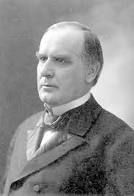“Punting the Pundits” is an Open Thread. It is a selection of editorials and opinions from around the news medium and the internet blogs. The intent is to provide a forum for your reactions and opinions, not just to the opinions presented, but to what ever you find important.
Thanks to ek hornbeck, click on the link and you can access all the past “Punting the Pundits”.
Katrina vanden Heuvel: Eric Schneiderman: A Gutsy Fighter for Mortgage Relief
This Thursday will mark three years since the collapse of Lehman Brothers, a defining moment of the financial crisis. Today, it’s clear that very few lessons have been learned from it by our political leaders or those on Wall Street; if any, the wrong lessons have been learned. But one conclusion, seared into the minds of ordinary Americans, is as clear as it is wrenching: The banks play by one set of rules and are held to one standard, while the rest of us are held to another.
In exchange for taking the global economy to the brink, the banks have received $700 billion of relief from TARP funds and $1.2 trillion in secret loans from the Federal Reserve, at no interest. It’s no wonder record profits-and record bonuses-returned so quickly. American homeowners, on the other hand, have been devastated. The crisis wiped out $16 trillion in household value, little more than half of which has been recouped. More than 25 percent of homeowners are underwater on their mortgages. The suffering has not subsided-and it won’t for many, many years.
It was compounded by the fact that the very banks causing it made it worse. After signing off on shoddy loans, putting Americans in homes they couldn’t afford, on terms they could barely understand, the banks began foreclosing on homeowners en masse, using what’s known as robo-signing. That procedure allows banks to process foreclosures faster by encouraging employees to use fake signatures to approve documents they don’t read.
Robert Reich: How to Create More Jobs By Lowering Wages: Texas and America
Perry and Romney can duke it out over who created the most jobs, but governors have as much influence over job growth in their states as roosters do over sunrises.
States don’t have their own monetary policies so they can’t lower interest rates to spur job growth. They can’t spur demand through fiscal policies because state budgets are small, and 49 out of 50 are barred by their constitutions from running deficits.
States can cut corporate taxes and regulations, and dole out corporate welfare, in efforts to improve the states’ “business climate.” But studies show these strategies have little or no effect on where companies locate. Location decisions are driven by much larger factors – where customers are, transportation links, and energy costs.
George Zornick:
CBO to Super-Committee: Increase the Deficit!
The head of the non-partisan Congressional Budget Office testified before the super-committee on deficit reduction on Tuesday, and while he outlined the basic math behind the nation’s long-term debt problem, he had a surprising message: don’t be afraid to make the deficit bigger over the next couple years, while the nation battles recession.
Douglas Elmendorf, the CBO director, said that given the massive Bush tax cuts, which severely throttled the federal government’s revenue stream, and given the large number of baby-boomers who will be on Medicare-combined with skyrocketing health costs-something has to give.
Dean Baker: Does President Obama Want to Impose a Crushing Burden on Our Children?
Sorry deficit fanatics, this one has nothing to do with the cost of the stimulus or the deficits run-up during the Obama years. We’re talking real money here. We’re talking about plans to raise the age of Medicare eligibility to 67.
To deficit hawks everywhere this is a great way to save the government money. Life-expectancy at age 65 is roughly 20 years. Therefore raising the age of eligibility for Medicare by two years would shave roughly 10 percent off the program’s budget. (The actual saving would be somewhat less since it is cheaper to treat people when they are 65 and 66 than in their 80s or 90s.) For a program that is projected to cost more than $1 trillion a year (at 5 percent of GDP) in a decade, and even more in following decades, this would amount to real savings.
But the cost of this savings is a much higher health care bill for beneficiaries. As it is now, millions of people in their 60s struggle to hang onto jobs that provide health care insurance or do without, hoping that they can make it until 65 without a major medical problem. This proposal pushes the magic age out two more years.
Mary Elizabeth King: Breaking the Silence on Race
Desmond King and Rogers Smith, writing in The New York Times of our current bipartisan silence on matters of racial equality, argue that the economic calamity of the United States is also a racial crisis. They say that it is not only justifiable, but also necessary, to evaluate policy choices partly on the basis of whether they are likely to reduce or increase racial inequalities.
King and Smith note the findings of the Pew Research Center that in 2009, the U.S. median household net worth was $5,677 for blacks, $6,325 for Hispanics and $113,149 for whites. In the same way, in July of this year the unemployment rate was 8.2 percent for whites, yet 16.8 percent for blacks. African Americans and those of Hispanic descent started far behind and they continue to trail. Democrats now rarely broach the subject of race, leaving “modern Republicans with little to criticize, lest they appear to be race-baiting, so they too keep quiet.” King and Smith contend that political leaders must openly recognize that neither ignoring race nor concentrating on it exclusively will bring progress.
Jamelle Bouie: [Say Hello to the Highest Poverty Rate in 17 Years Say Hello to the Highest Poverty Rate in 17 Years]
The Census Bureau has released its poverty numbers for 2010, and the picture isn’t pretty: 46.2 million people were living in poverty last year, according to the bureau’s latest report, the largest number for the fifty-two years that the data have been published. This marks the fourth consecutive year in which poverty rose, with an overall poverty rate of 15.1 percent, up from 14.3 percent in 2009, and the highest rate since 1993. Indeed, with real median household income at $49,445-a drop of 2.3 prcent from 2009-incomes are lower now than they were more than a decade ago.
According to the Center on Budget and Policy Priorities, poor households are much more likely to experience hardship than their middle or upper-class counterparts. Among other things, they are more likely to experience hunger, live in overcrowded housing, miss a rent or mortgage payment and forgo medical care.
Wlliam Rivers Pit: The Cult of Death
Trying to figure out what this whole “Tea Party” phenomenon is all about is a lot like trying to peer into the bottom of a muddy pool. The “mainstream” news media has accepted them as a legitimate, powerful force in American politics, as evidenced by CNN’s so-called “Tea Party Debate” for the Republican presidential candidates on Monday night. A group that did not exist three years ago suddenly has enough clout to rate a television banner and a chunk of prime-time coverage.
But who are these people, really?
On September 25, 1789, the first Congress of the United States adopted 12 amendments to the U.S. Constitution–the Bill of Rights–and sent them to the states for ratification. Ten of these amendments were ratified in 1791. In November 1789, North Carolina became the 12th state to ratify the U.S. Constitution. Rhode Island, which opposed federal control of currency and was critical of compromise on the issue of slavery, resisted ratifying the Constitution until the U.S. government threatened to sever commercial relations with the state. On May 29, 1790, Rhode Island voted by two votes to ratify the document, and the last of the original 13 colonies joined the United States. Today, the U.S. Constitution is the oldest written constitution in operation in the world.





Recent Comments